- Learning time
- 20 minutes
- First play time
- 30 minutes
Codenames
Designed by: Vlaada Chvátil
Codenames is a great deduction/lateral thinking game that will melt your brain.
Best played with teams (there is a two-player option as well), each team (one red, one blue) is a rival set of spies trying to solve their assigned ‘cases’ before the other team does. That’s the theme anyway – but what makes Codenames special is the gameplay.
A bunch of 25 cards with single words on them (for instance: mountain, china, teeth, bag, table) are laid out in a 5×5 grid in front of the players. Each team designates a spymaster, and the spymasters get to look at a single extra card: showing a 5×5 grid that designates each word a colour: red, or blue. They now know which word ‘belongs’ to which team, and their job is to get their own team to pick certain words – and avoid other ones. And they do so by giving clues.
On a given turn, the spymaster gets to clue one word of their own (-that doesn’t feature on the grid) and a number. The clue is trying to lead their teammates to specific words on the grid, and the number is how many words the spymaster is attempting to link to. Having given a clue, the spymaster must now remain poker-faced and give nothing away as their team discuss options. For instance the spymaster – using our words above – may have ssid. “Tea, 2” hoping their team will guess bag (teabag) and china (“all the tea in china”). But the team might assume that table is the most likely word, as that’s what they eat their tea off – and then you have a wrong guess.
Wrong guesses are bad because A. they end your turn immediately and B. they may reveal one of the other team’s words, in which case you’re helping out your opponents! Other cards are revealed as Bystanders (your turn merely ends) but nestled amongst all the cards is one that is the Assassin: reveal this card, and you lose the whole game. Otherwise, the first team to reveal all their cards wins.
It’s a game of few rules but the fun – for those who like their fun like this – is in the intuitive, lateral thinking, and almost inevitable mis-understandings or mis-assignments of one word to another. Teams are always allowed one bonus guess, which is a way of utilising earlier, fumbled clues, and spymasters are allowed – though it’s risky – to not give a number at all, but say ‘unlimited’ instead. The upside of that is their team can keep guessing as long as they’re getting the words right. The downside is the guessers don’t know how many words the spymaster is attempting to link to…
If guessing is hard, being the spy master is harder still, trying to think of links between several of your team’s words that don’t link to your opponents. Players can also use a timer to put pressure on each other and force errors!
Joe says
Codenames really works across the whole spectrum, from casual after-dinner party players to games night regulars. But you do have to like words, and be good at creating, and spotting, links between them. As a keen cryptic crossword fan, I love being the spymaster, and trying to find just the right bon-mot to connect two, three or even four seemingly unrelated words. And then praying my field operatives have the wherewithal to grasp the hint and run with it. A classic in the making.
The guru's verdict

-
Take That!
Take That!
None, though if the players are happy with it teams can indulge in 'coffee-housing' and trying to bamboozle each other with suggestions.
-
Fidget Factor!
Fidget Factor!
Though the complexity rating is one, the games mechanic is lateral thought, and so clues-giving might vary hugely in what connections are. It can be played referencing cultural or historical moments or events that young kids won't be aware of - but you can very easily tailor the clue-giving for children younger than the game's offical '14 and up' to make connections with. Our kids have enjoyed Codenames from younger than ten.
-
Brain Burn!
Brain Burn!
Moderate for the spies - heavy for the spymaster, especially if the timer is ticking!
-
Again Again!
Again Again!
Simple to play and doesn't outstay its welcome, Codenames is imminently re-playable.

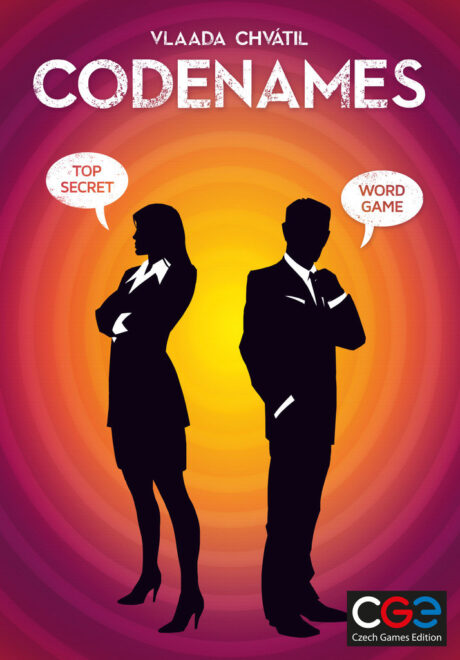
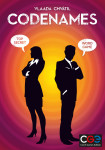
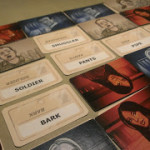


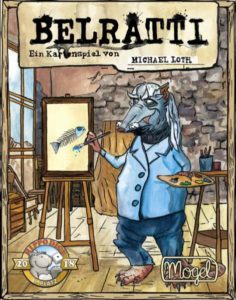
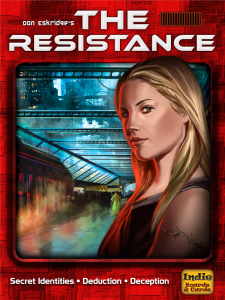
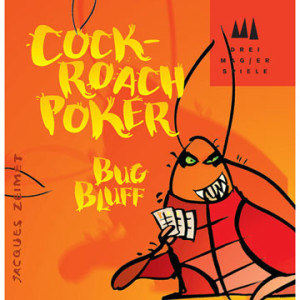
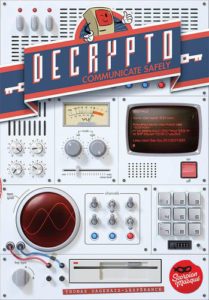

Sam says
In my regular gang of gamers most of us love this, but one utterly despises it. It probably is something of a 'Marmite' game in that sense: closer to informal, word-of-mouth party games that don't usually come in a box but can be played with pen and paper. In fact you could mock up Codenames if you wanted, but the fact it comes with so many cards, giving such variation - not to mention the grid cards for the spymasters and the team 'reveal' cards - mean it's pretty good value. An inexpensive game that provides a lot of fun in a short length of time - if you like your fun to be the furrowed-brow variety! The only potential caveat is that the game does demand at least a bit of thinking time for the spymasters to come up with appropriate clues - but the kind of game Codenames is, the lulls in play may suit you.